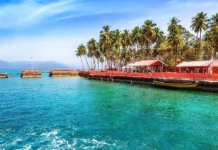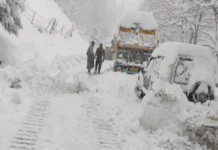 KATHMANDU: New excavations have unearthed ruins of a thriving village with a shrine in Lumbini, the birthplace of Lord Buddha in Nepal, more than a thousand years before Emperor Ashoka built monuments there to spread Buddhism.
KATHMANDU: New excavations have unearthed ruins of a thriving village with a shrine in Lumbini, the birthplace of Lord Buddha in Nepal, more than a thousand years before Emperor Ashoka built monuments there to spread Buddhism.
“We have now very robust proof that Lumbini’s history extends far before the visit of Emperor Ashoka. The government of Nepal will step-up efforts to preserve the outstanding universal value of the site,” said Sushil Ghimire, Secretary at the Ministry of Tourism and Culture here.
Until now the earliest temples have been attributed to Indian Emperor Ashoka, who in the 3rd century BC built a pillar and brick temple in Lumbini in his efforts to spread Buddhism across the region. Lumbini is a UNESCO world heritage site since 1997.
With the remains of a village dating back to as early as 1300 BC discovered a few hundred meters south of Lord Buddha’s birthplace, the history of settlement in the region has been pushed back by a thousand years.
“For the first time in South Asia, excavations have revealed a pre-Ashokan temple of brick, which itself was built over an earlier structure made of timber,” said Robin Coningham of UK’s Durham University, who co-directed international experts in the months-long excavations that concluded recently.
“These two discoveries are great steps which helps us to better understand the origin of Lord Buddha’s life and the spiritual importance of Lumbini,” said Acharya Karma Sango Sherpa, vice president for the Lumbini Development Trust.
A combined team of Nepalese and international experts worked in the excavations under a UNESCO project funded by Japan.
The town of Lumbini in Nepal is where the Buddha was born as Prince Gautama Siddhartha, before achieving enlightenment more than 2,500 years ago. Lumbini was where the Buddha lived until the age of 29.
China has recently undertaken a project worth USD 3 billion to transform Lumbini into a premier place of pilgrimage for Buddhists from around the world, raising concerns in India as the small town is situated close to the Indian border. -PTI






